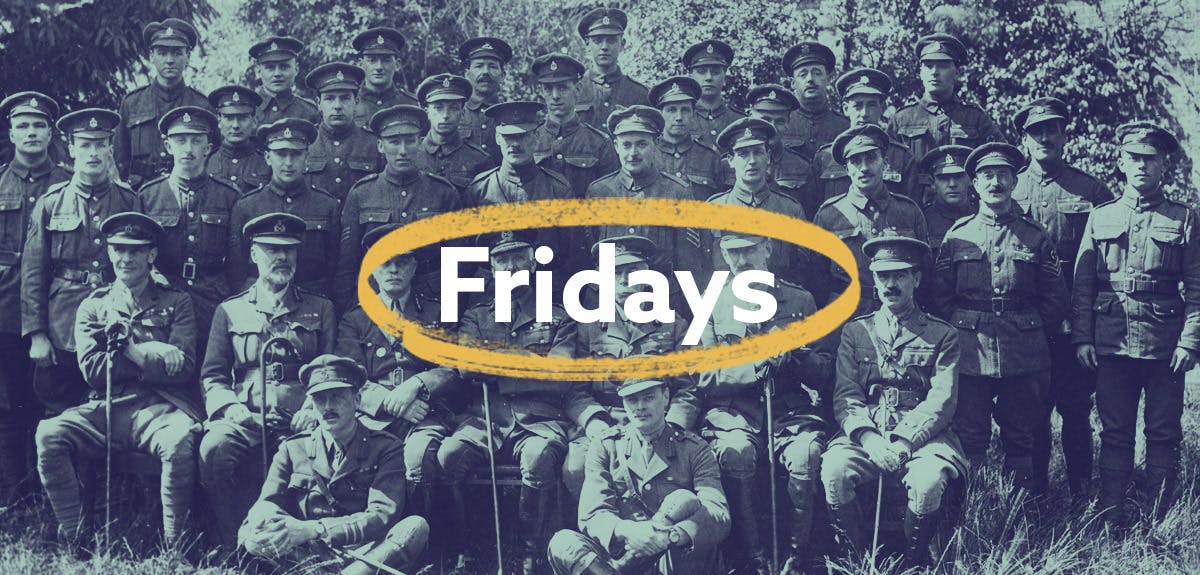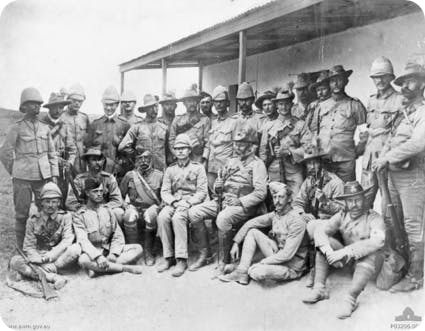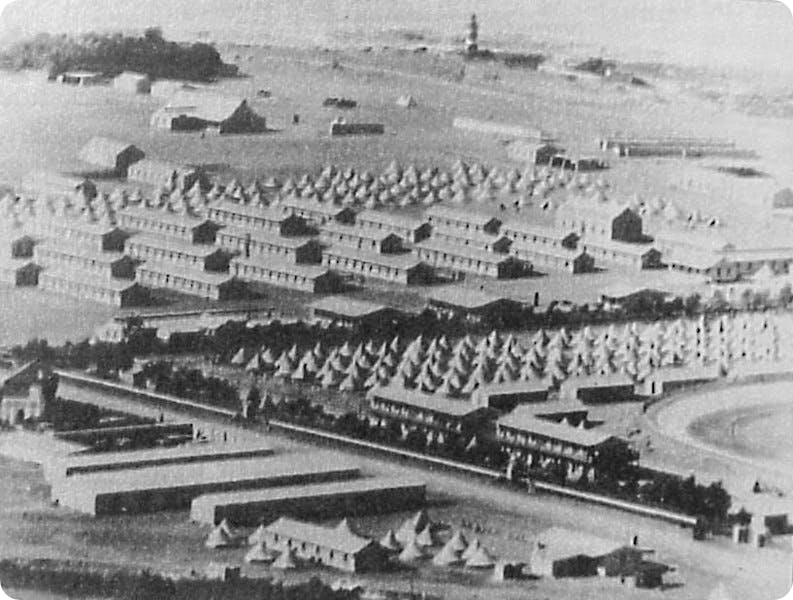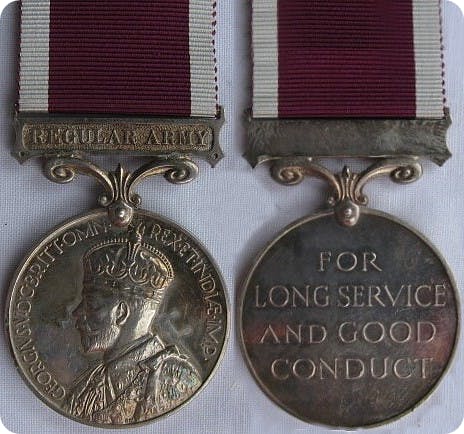Find family heroes in a medley of new military records
5-6 minute read
By Jessie Ohara | June 3, 2022

Explore over 200,000 new military records covering the British Army, Royal Navy, Royal Marines and more.
With two brand new record sets and substantial additions to two other military collections, there's so much to uncover about your bravest ancestors this Findmypast Friday. Here's a rundown of everything that's new.
British Army, Recommendations For Military Honours and Awards 1935-1990
This fascinating collection from The National Archives includes nearly 80,000 records, making it our largest release of the week.
The transcripts include British Army personnel and some dominions armies' personnel. They also contain some recommendations for members of the Royal Navy, Royal Air Force and Royal Marines. Reasons for recommendations vary, including gallantry in the face of the enemy, 'meritorious service' (not in the face of the enemy), or distinguished service.
In the records, you could find your ancestor's name, unit, rank, home address, and often a particularly poignant description of the action that warrants an award.
The records cover the years in the lead up to World War 2 and beyond. If you have a parent or grandparent that served, make sure to have a browse through these records. Even if you don't, it's worth a browse anyway - collections like this can be an incredible way to connect with our important shared history.
South Africa, Local Armed Forces Nominal Rolls, 1899-1902
Another entirely new collection from The National Archives, this series comprises over 53,000 records detailing some of the British Army units raised locally in South Africa during the Second Boer War. These local units mainly consisted of British men who had emigrated to South Africa before the war.
The record transcripts reveal names, ranks, army units and in many cases, enrolment and discharge dates, all useful information for fleshing out the military branches of your family tree.
A brief history of the Second Boer War
The Second Boer War was one of the bloodiest and longest wars engaged in by the British, with South Africa's effective guerilla tactics challenging over 500,000 British soldiers during the conflict.

British and Australian Army officers in South Africa, circa. 1900.
The British famously underestimated the Boer forces, leading to significant loss of life on the British side. In the first offensive of October 1899, the outcome of the battle was unclear. In the second offensive just two months later, the British Army won, though not without significant losses.
In early 1900, the British Army took Bloemfontein, and in June they took Johannesburg. In 1901, the British started to capture both White and Black South Africans and place them into labour camps, while simultaneously cutting off the food supplies in their occupied territories. They destroyed property and cattle across the country. Towards the end of the war, there were nearly 40 camps across South Africa.

Green Point PoW camp near Cape Town.
Though the British Army won, the war cost nearly £200 million and the British lost over 22,000 men in total. Peace negotiations began in March of 1902, and on 15 May, 30 representatives from each side completed and signed the Treaty of Vereeniging.
While collections like this can never truly portray the true atrocities of war, they can help to spotlight the stories of the individuals that served and fought, outside of grand facts and figures.
Britain, Campaign, Gallantry & Long Service Medals & Awards
We've added over 51,000 new records to this collection, which details those that showed strength and courage in the face of war.
Specifically, these latest additions cover recipients of:
- Long Service Good Conduct Medal
- India General Service Medal Pegu (Army) 1852-53
- India General Service Medal Pegu (Navy) 1852-53
These records have been collated from multiple sources, including The National Archives and the British Library, but also from musters, pay lists, and other service records. As a result, each record varies in its information. You'll usually find a combination of regiment and rank, reason for award, any other known medals, discharge date and more.

King George V's version of the Long Service Good Conduct Medal.
Undoubtedly, this collection is an incredibly valuable resource for researching your military ancestors, giving you remarkable insight into their service and valour.
British Royal Navy & Royal Marines Service and Pension Records, 1704-1919
We've added over 19,000 more records to this collection, including a shore list of men who joined the Royal Marines in 1810.
The records reveal the rank and division of your seafaring ancestor, as well as the date they joined and any remarks made by their superior.
From the 1700s all the way up to World War 2, the Royal Marines were considered to be the strongest naval force in the world. Is your ancestor among those that served?
Newspapers
Hold the front page! In case you missed our announcement, we've made our entire newspaper archive free all this week to celebrate Queen Elizabeth II's Platinum Jubilee.
Our latest releases are included in the free access promotion, so let's take a look at what's hot off the press this week before you delve in.
We've added three brand new local papers to the archive, covering the late 19th and 20th centuries:
- Eastleigh Weekly News and Hants Gazette, 1895-1900
- St Neots Town Crier, 1994
- Stockport Times, 1989
Meanwhile, we've added extra pages to an incredible 80 newspapers:
- Abergele & Pensarn Visitor, 1990
- Accrington Observer and Times, 1912, 1990
- Alderley & Wilmslow Advertiser, 1946
- Aldershot News, 1978-1979
- Anfield & Walton Star, 1992
- Ashby Mail, 1992
- Bebington News, 1991
- Billingham & Norton Advertiser, 1992
- Birkenhead News, 1991
- Birmingham Journal, 1839
- Burton Daily Mail, 1997
- Cambridge Town Crier, 1992
- Cheltenham Chronicle, 1860
- Crewe Chronicle, 1980, 1994-1995
- Daily Record, 1988, 1994
- Dorking and Leatherhead Advertiser, 1986
- East Grinstead Observer, 1991
- East Kilbride News, 1995
- East Kilbride World, 1991, 1993
- Galloway News and Kirkcudbrightshire Advertiser, 1991
- Gateshead Post, 1994
- Glamorgan Gazette, 1984
- Heartland Evening News, 1998
- Herald Cymraeg, 1952
- Herald of Wales, 1950
- Hertford Mercury and Reformer, 1981
- Herts and Essex Observer, 1980
- Hinckley Times, 1993, 1998
- Hoddesdon and Broxbourne Mercury, 1993-1994, 1998
- Horley & Gatwick Mirror, 1992
- Huddersfield Daily Examiner, 1993, 1995
- Huntingdon Town Crier, 1987, 1989, 1996
- Ilfracombe Chronicle, 1891-1892
- Ilkeston Express, 1989, 1992
- Kensington News and West London Times, 1937, 1951, 1964, 1968,
- Long Eaton Advertiser, 1988, 1994
- Loughborough Echo, 1912
- Loughborough Mail, 1990, 1994
- Macclesfield Express, 1989, 1998
- Maghull & Aintree Star, 1991
- Merthyr Express, 1990
- Middlesex County Times, 1995, 1998
- Midweek Visiter (Southport), 1995
- Nantwich Chronicle, 1993-1994
- Northampton Herald & Post, 1991
- Nottingham Evening Post, 1994
- Nottingham Guardian, 1872
- Nottingham Recorder, 1996
- Oldham Advertiser, 1992
- Ormskirk Advertiser, 1876, 1894
- Perthshire Advertiser, 1919
- Peterborough Standard, 1986
- Port Talbot Guardian, 1981-1982, 1984-1985, 1995
- Rhondda Leader, 1987
- Ripley Express, 1992
- Rossendale Free Press, 1987
- Rugeley Mercury, 1988, 1990, 1992
- Runcorn & Widnes Herald & Post, 1989-1990, 1993
- Sevenoaks Focus, 1992
- Solihull News, 1994-1997
- Solihull Times, 1994-1996, 1998
- Somerset Standard, 1980
- Southall Gazette, 1979, 1995, 1998
- Southport Visiter, 1989
- Stafford Post, 1989, 1991
- Staines Informer, 1988, 1990
- Stanmore Observer, 1987-1988, 1990
- Stirling Observer, 1989
- Stockport Advertiser and Guardian, 1877
- Stockport Express Advertiser, 1992
- Stockton & Billingham Herald & Post, 1989
- Tamworth Herald, 1989, 1997
- Taunton Courier, and Western Advertiser, 1884
- The People, 1998
- Uttoxeter New Era, 1887
- Wellingborough & Rushden Herald & Post, 1989, 1992
- West Surrey Times, 1873, 1912
- Western Evening Herald, 1993
- Westminster & Pimlico News, 1998
- Winsford Chronicle, 1996-1997
Do any of our newspaper updates catch your eye? Simply start searching and filter by title to focus on your favourites.
Are you celebrating the Queen's Diamond Jubilee this weekend? As well as exploring our new releases and free newspapers, why not take a closer look at Her Majesty's coronation, reminisce about past Jubilees or test your royal credentials with the ultimate Queen Elizabeth quiz?
Related articles recommended for you

Discover Home Children's stories
What's New?

We found war veterans and healthcare workers within Keir Starmer's family tree
Discoveries

More footballers in the family? Jack Grealish’s family tree
Discoveries

